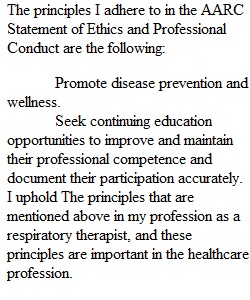


Q Are you a lifelong learner? You have likely heard this term frequently during your professional career. We all engage in years of “mandatory” learning that begins in the elementary years and continues through high school education and into undergraduate and graduate education for many learners. However, lifelong learning is differentiated as the continuous, voluntary, self-motivated pursuit of learning beyond formal education. The aim is to improve knowledge and skills within a specific context, whether personal or professional. For health care professionals, lifelong learning is a critical component of keeping pace with an ever-changing health care landscape. Professional Development Defined The concept of lifelong learning is often interchanged with “professional development.” Professional development (PD) is the process of identifying goals and learning new skills to help one grow and succeed in their job or profession. Professional development occurs after you enter the workforce. Traditional continuing education (CE) has generally been considered the cornerstone of continued development for health care professionals. This mode of development is typically based on traditional learning methods with a focus on updating and reinforcing current knowledge through training, conferences, and seminars. Conflicting ideas exist about the purpose of CE. Health professionals view CE as a means to maintain their professional credentials. Employers see CE as a way to keep staff current on best practices. Regulators believe CE maintains competence in professional disciplines (Institute of Medicine, 2010). However, PD extends far beyond traditional CE to a broader variety of learning methods that focus on developing personal and professional qualities that support success, growth, and advancement in one’s career. Professional Development Opportunities Opportunities abound for those who want to invest in and promote their career growth. You are engaging in PD by completing your bachelor’s program. It may not be a requirement for your professional work. Yet, you are taking advantage of the opportunity to acquire new knowledge and skill that could set you up for promotion, a job change, or becoming an expert in your workplace. But formal degree programs are only one mode of PD. Numerous activities contribute to professional growth and development: • Specialty certification in your professional discipline • Participation in professional organizations • Conducting and presenting research • Training on a new system, process, or technology • Take on new challenges in your current position such as project management or additional job responsibilities • Participation in mentorships • Management, leadership, or administrative training • Become a trainer or educator in your field or place of employment • Professional networking • Write for professional or trade journals Many opportunities involve an investment in time or money, but many don’t. The extent of your creativity and drive is the only limitation to professional growth. So How Important IS Professional Development? Continual professional development is more important than ever in ensuring career success. Technologies and best practices are evolving rapidly in health care. It is paramount for professionals to keep pace with industry trends. As the professional world becomes increasingly competitive, continual learning is crucial for new and experienced professionals to continue honing their skills and expanding their knowledge. Taking advantage of professional development opportunities gives you a leg up on many others who are not investing in their career development. Taking ownership of your career and pursuing learning that is not required allows you to excel and be recognized for your efforts, potentially opening doors to many growth opportunities. There is no universally right way to go about career development. But it is essential to have clear goals and a plan for achieving them, including a timeline to guide your efforts. As your career progresses and you better understand your vision for success, be sure to adjust and update your career plan as needed to stay on track.
View Related Questions